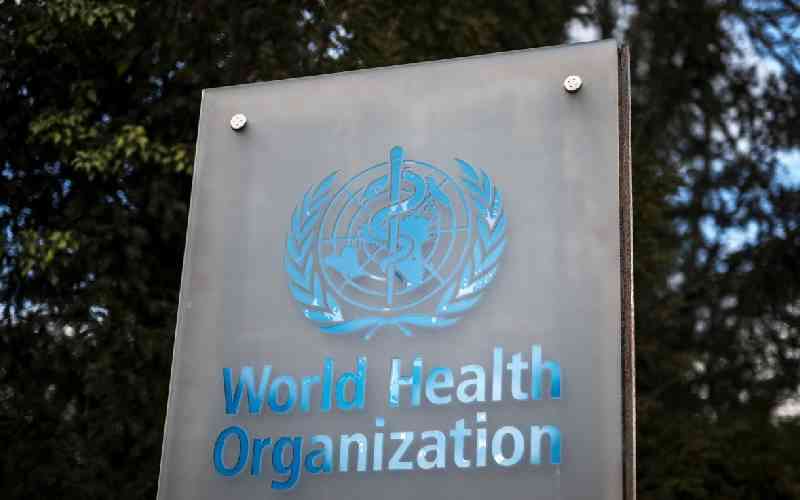
NAIROBI: There is growing concern in the country over soaring incidences of liver failure and liver cancer linked to lethal strains of the Hepatitis virus that may have infected many unsuspecting Kenyans.
As Kenyans join the rest of the globe to mark the World Hepatitis Day on Thursday, it is believed that many Kenyans are infected with the virulent Hepatitis B and C and face dangers of developing liver complications if they remain untreated. Many others remain vulnerable to the virus since they are not vaccinated, especially against Hepatitis B.
Recent data from 150,000 blood donations in the country indicated that more Kenyans were found to have Hepatitis B virus compared to those who had HIV. Hepatitis B and C are 100 times more infectious than HIV and are spread through infected blood and body fluids including sexual discharges.
The Kenya Medical Research Institute’s Head of Infectious and Parasitic diseases Prof Elijah Songok, who has been studying the Hepatitis viruses for years, indicated that many emerging cases of liver complications and liver cancers in Kenya are being traced to Hepatitis B and C viruses, which are the most lethal to Kenyans.
“Various studies show that at least 40 per cent of Kenyans attending liver clinics in the country are infected with Hepatitis. B and C. This is a very high figure that should make everyone sit up and take notice,” he said.
Prof Songok said many Kenyans living with HIV are also succumbing to death not from HIV, but from liver complications caused by Hepatitis B and C. The viruses make the Anti-Retroviral treatment against HIV less effective thereby accelerating their death.
He estimated that at least 10 per cent of pregnant women in the country have the viruses and will pass them to their children during childbirth. New born babies have up to 90 per cent risk of developing liver complications after being infected.
“So the smart thing is for Kenyans to take the personal initiative to know their status and receive appropriate treatment and vaccinations before it are too late,” he advised.
Recent guidelines for the treatment of Hepatitis B and C viral infections in Kenya published by the Ministry of Health and the Gastroenterology Society of Kenya paint a worse picture.
They indicate that up to 60 per cent of chronic liver diseases and 80% of liver cancer cases in the country are due to chronic infection with the Hepatitis B virus.
“Liver cancer is among the top 10 commonest solid tumours in Kenya and diagnosis with liver cancer is invariably fatal,” says the guidelines developed by medical specialists of the liver and gastrointestinal tract.
On his part, Dr. Ahmed Kalebi, an Honorary Lecturer in the University of Nairobi explained that Hepatitis B and C are dangerous since they rarely exhibit symptoms until at advanced stages when the liver is already damaged.
“In some people, the viruses are cleared away by the body’s immune system, but in others, they persist and damage the liver functions,” he said
Dr Kalebi, who is also the CEO of Lancet laboratories which screens for the Hepatitis viruses, said up to 90 per cent of persons infected with Hepatitis C virus typically liver complications if untreated while about 5 per cent of those infected with Hepatitis B will have liver problems. He added while there is a vaccine again Hepatitis B, there is none against Hepatitis C, making it more lethal.
“Currently, only Kenyans under 15 years are vaccinated against Hepatitis B under the government routine vaccination programme and therefore protected while the rest of the unvaccinated population remains vulnerable.” he said
Dr Kalebi said that Kenyans who are at high risk of getting Hepatitis B or C include health workers, dialysis patients, recipients of solid organ transplants, men who have sex with men, injecting drug users and commercial sex workers due to likely exchange of blood and body fluids.
On his part, Principal Secretary Ministry of Health Dr Nicholas Muraguri acknowledged the scale of the problem but said a number of measures are in place to stem further spread of the Hepatitis viruses.
He said the government has introduced mandatory screening of all blood used in transfusions to prevent spread of Hepatitis B and C.
Prof Songok suggested the need for a national programme to enhance screening, vaccination and treatment against Hepatitis B and C, saying the viruses are not receiving the attention they deserve.
“We need a robust programme similar to the one deployed against HIV in order to save more Kenyans from devastating liver complications that are a ticket to the grave,” he said.
He also called for reduction in prices of vaccines and treatment to enable more Kenyans access them. Currently, a full dose of the vaccine costs for HBV between Sh3,600 in public health facilities and as high as sh8,000 in some private facilities.
 The Standard Group Plc is a multi-media organization with investments in media
platforms spanning newspaper print
operations, television, radio broadcasting, digital and online services. The
Standard Group is recognized as a
leading multi-media house in Kenya with a key influence in matters of national
and international interest.
The Standard Group Plc is a multi-media organization with investments in media
platforms spanning newspaper print
operations, television, radio broadcasting, digital and online services. The
Standard Group is recognized as a
leading multi-media house in Kenya with a key influence in matters of national
and international interest.











